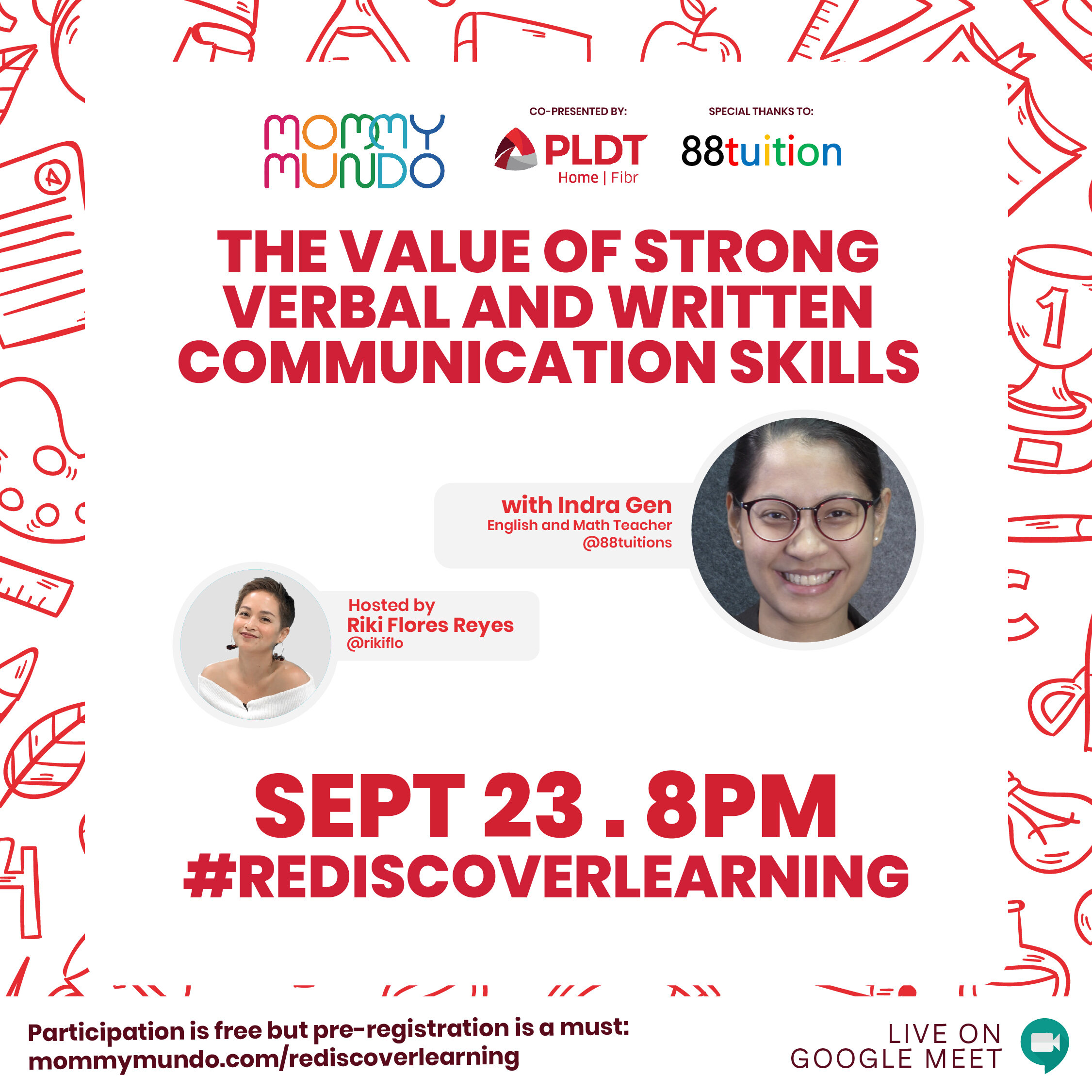One of the most exciting developmental milestones for both children and parents is when they begin verbal communication. Speaking is exciting for the child because they begin to see and understand how they can get their wants properly understood by their parents and other caregivers. They learn the power of language. Likewise it is exciting for parents to finally understand their baby; something they have likely wanted and yearned for since before the baby was born!
Mommy Mundo, along with PLDT Home Fibr and 88Tuition, an online learning platform, teamed up to bring an event called The Importance of Written & Verbal Communication with the aim of bringing tips and advice to moms and dads on how they can hone this skill in their little ones. Held on September 23, 2020, the event was hosted by Riki Flores Reyes and Indra Gen, an English tutor from 88Tuition who has been in the education field for over 12 years, and has made it her life’s work to help students reach their fullest language potential.
After an informative session, a lively discussion followed where parents were allowed to ask their questions on written communication and verbal communication. The most important topics and questions tackled are documented below.
-
At what age do children start reading?
A majority of children begin reading at age six or seven, although some will begin sooner, around the age of four or five. While early reading can signal advanced cognitive functions, it doesn’t necessarily indicate that the child will continue to stay advanced as their schooling progresses.
Children around the age of three may begin showing writing abilities, however. Being able to copy letters, know what letters to write based on instructions, or write their own name can come much earlier than reading, which requires stringing sounds together to form a word and then, subsequently, understanding that word’s meaning.
-
How can parents encourage reading and writing?
In the realm of written and verbal communication, practice makes perfect. The more parents and caregivers read to their children, the more they point out letters and words while reading them out loud, and the more they give them access to writing tools and items to copy, then the more the child will be inclined and interested to learn.
-
At what age do children begin comprehending stories and their lessons?
As young as three years old, children should be able to do some basic storytelling or story retelling (for stories told to them) and slowly perfect the order of the story (i.e. start, middle, and ending). However, understanding the deeper meaning of the stories, such as morals or lessons, are understood at around the age of five or six, and often this comes with practice, which means the parents begins by showing the child the lesson of a few stories to exhibit that stories can contain lessons to learn.
-
What is the importance of written and verbal communication?
Both written and verbal communication are essential life skills. Children need these skills to attend school, navigate their environment or world (if they go on errands, for example), build relationships, and–much later on–apply for jobs.
What is important to remember when it comes to written and verbal communication is that children need not be perfect from the get go. It is something that can be worked on over long periods of school time, and even well into adulthood. Parents should simply encourage communication (of all forms, which includes listening, observing, and understanding!) in order to help their children hone their communication skills.




Leave a Reply